This is how Facebook and Oculus will make VR a social experience
New features and bold experiments
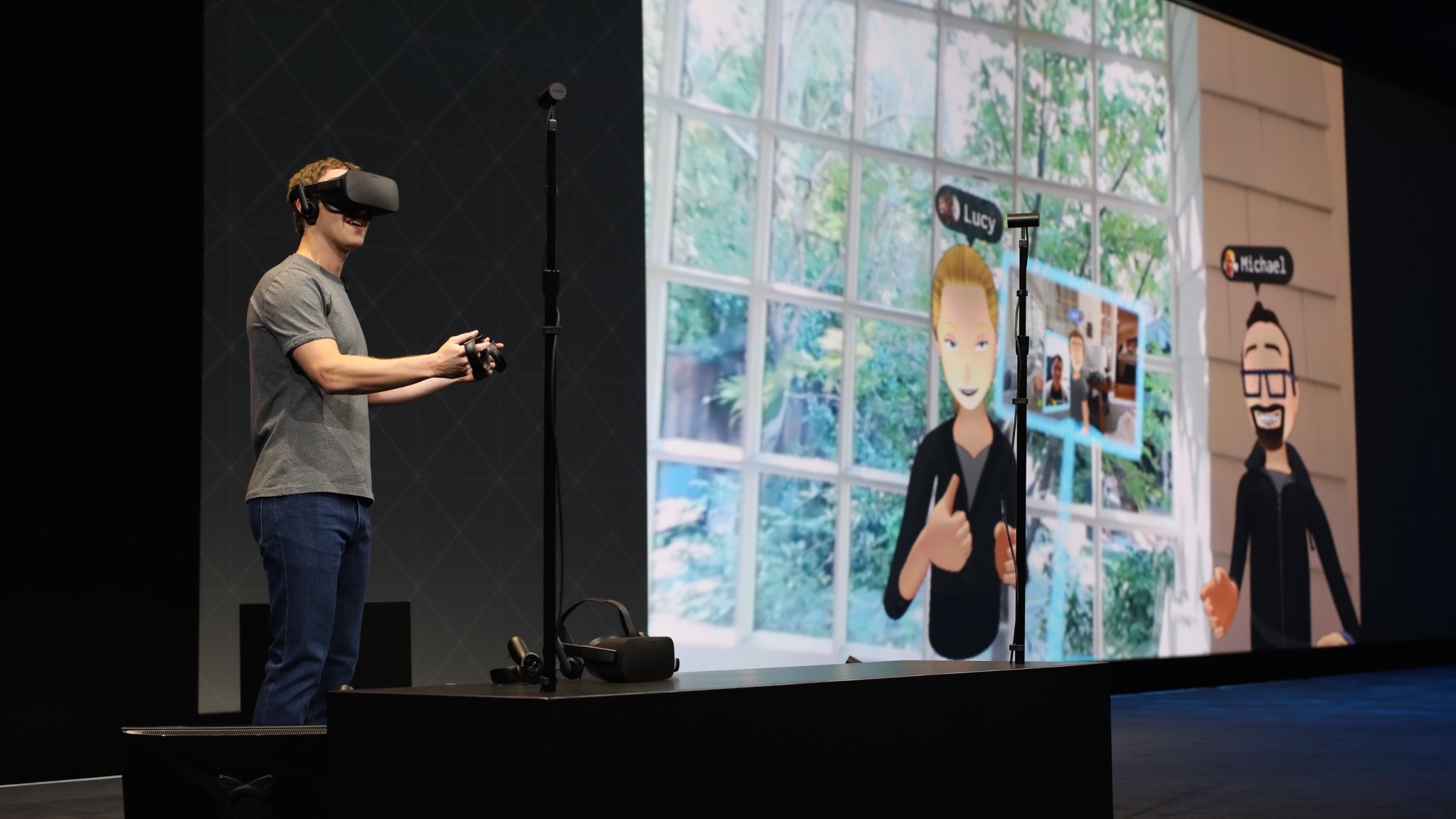
Virtual reality may seem like the ultimate isolation experience, but according to Facebook and Oculus, it doesn't have to be that way. In fact, it can be the quite opposite.
"Virtual reality is the perfect platform to put people first," Facebook CEO Mark Zuckerberg said at the Oculus Connect 3 conference today. Not every VR experience will be social, he noted, but for those looking to connect with friends and family, you'll have plenty of ways to do so while you're strapped inside a headset.
To this end, Facebook and Oculus demonstrated and announced a number of "social VR" features on stage. These ranged from still-incubating experiments to features headed to the Oculus Rift and Samsung Gear VR soon. All showed just how central social interaction is to the firms' plans for virtual reality.
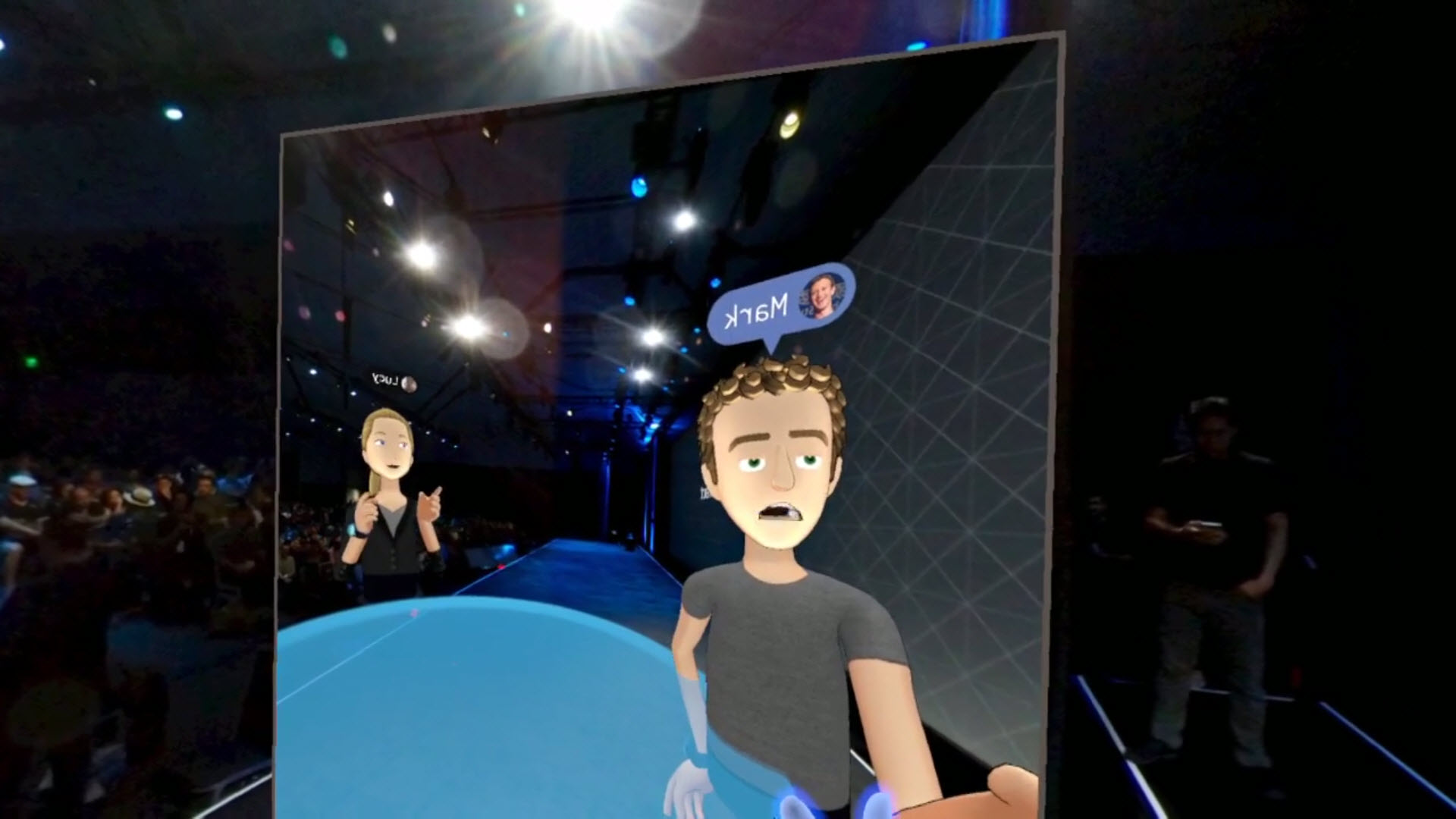
Zuckerberg donned a Rift headset and grabbed hold of Touch controllers to walk through several experiences Facebook is currently tinkering with. Many were shown off in a more basic form at this year's F8, but it was plain to see these experiments are progressing nicely.
Styled as an avatar that resembled a "young Justin Timberlake," Zuckerberg joined up with two other avatars, and together they jumped into a few exotic locations, including the ocean floor and Mars (see, it won't take billions of dollars to get there, one of the avatars quipped).
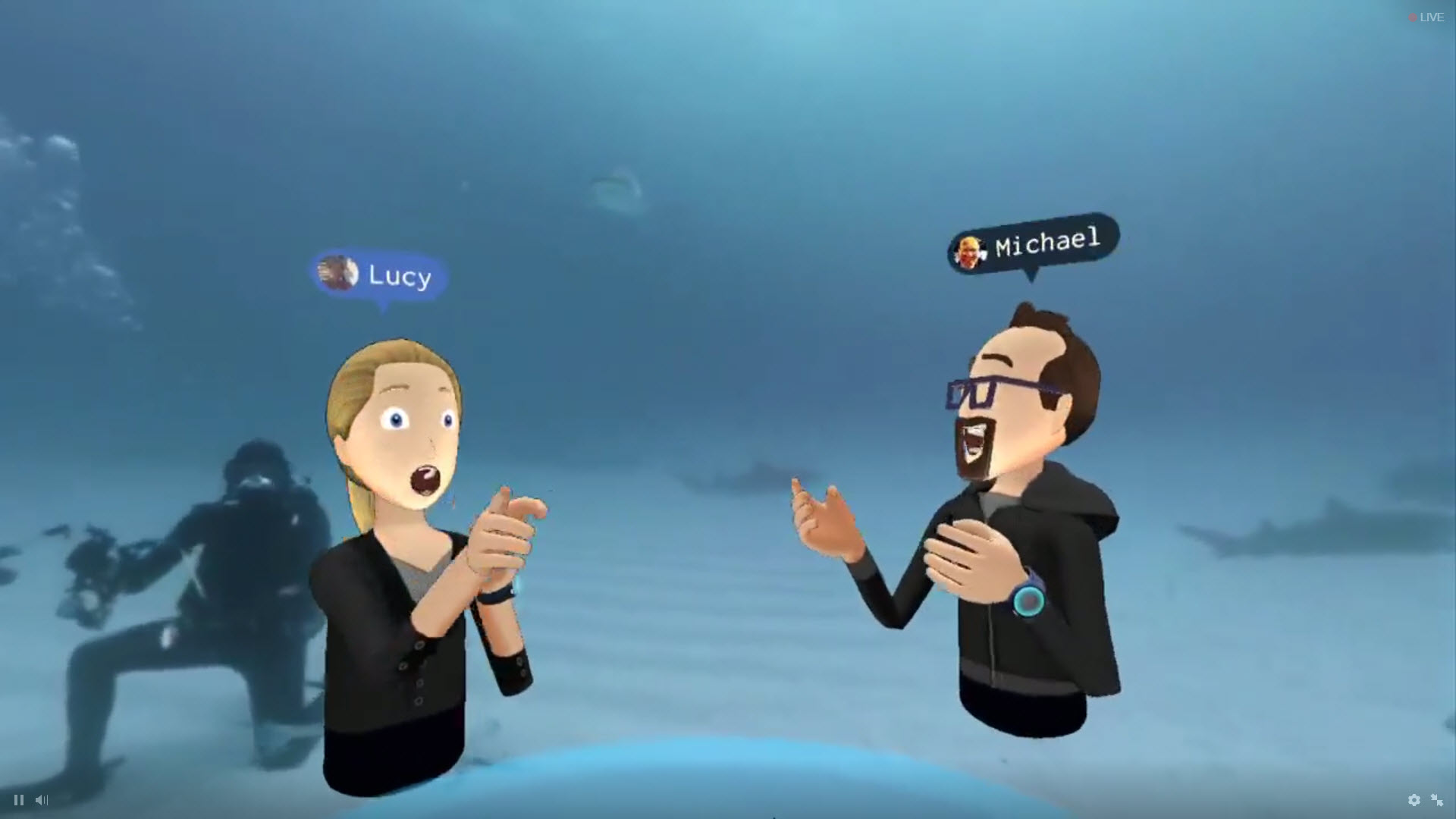
Ever the CEO, Zuckerberg ultimately decided to visit his office at Facebook HQ, where the avatars played a quick game of cards. The trio also conjured a movie screen so they could watch a short clip together.
Zuckerberg also wanted to check in on his dog at home, so the avatars - and by extension, the thousands of people watching - were transported to his abode. We could see his dog, Beast, was doing fine.
Sign up for breaking news, reviews, opinion, top tech deals, and more.
An incoming call was answered within the VR world - Zuckerberg's wife, Priscilla Chan, popped up live via video feed. She was not wearing a headset, so this served to illustrate that even in VR, you can interact with people on the outside.
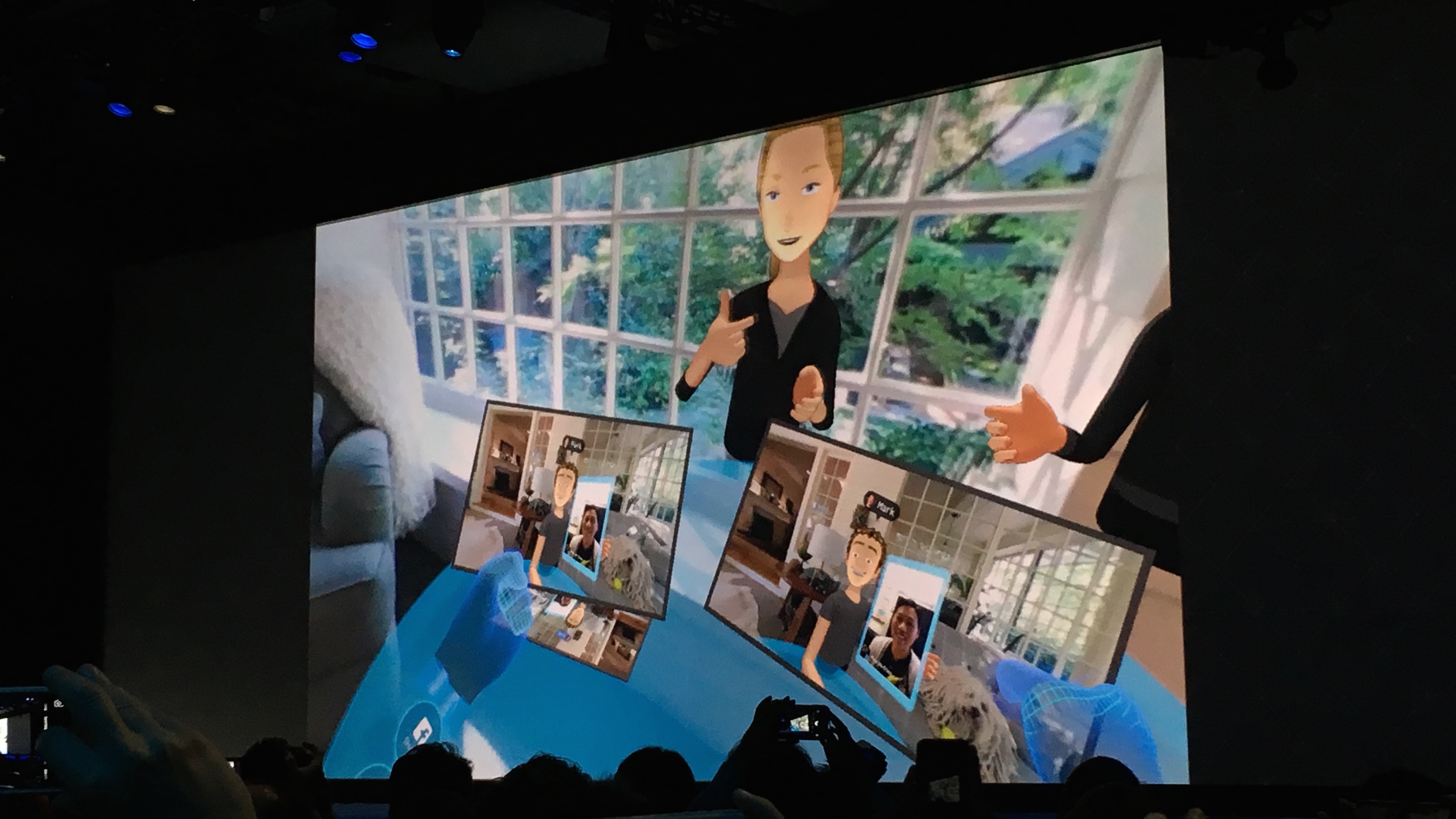
Likely because he's the founder of the largest social network on the planet, Zuckerberg grabbed a virtual selfie stick to take a "modern day family portrait" to post to Facebook. Though not a feature for Rift or Gear VR yet, the company seems keen to allow people to post snaps and videos straight from their VR headset to Facebook. We wouldn't be surprised if the firm is working on Instagram posting, too.
While these are still just "explorations", Zuckerberg's walk-through showed Facebook is actively working to integrate social elements into virtual reality, allowing users to connect and engage within VR as well as with people who aren't wearing headsets. We wouldn't be surprised if the next time Zuck shows these demos off, the features are even closer to actualization.
Avatars, Parties and Rooms
If Facebook was the "here's what you will be able to do," Oculus was the "here's what you can do now" during the OC3 keynote.
The Rift makers introduced a few new features designed to make their VR experience a bit more personal as well as help users connect with friends.
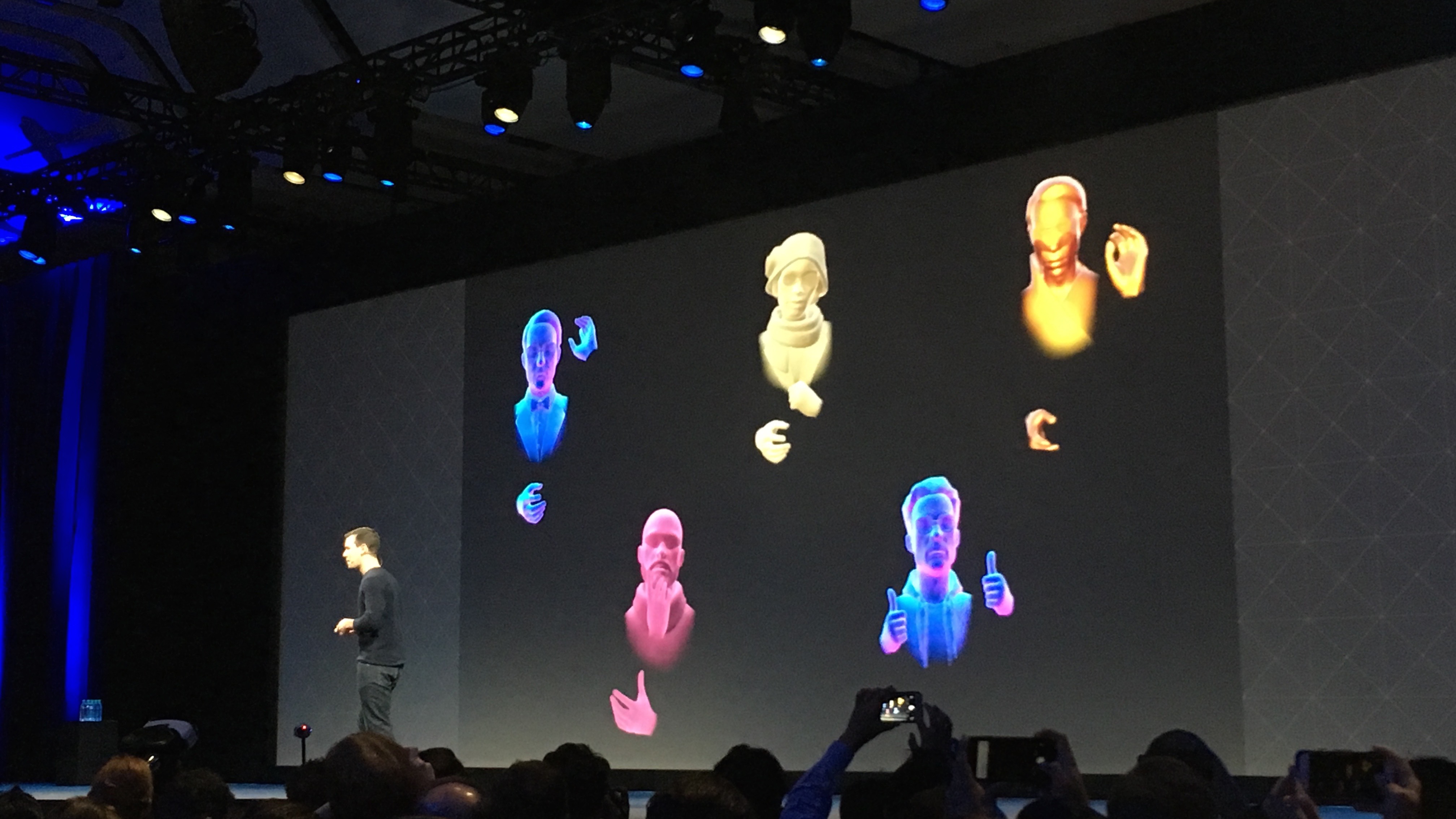
First up, Oculus Avatars, or customizable VR identities users create for themselves. There are over 1 billion Avatar permutations possible, Oculus said, so users can make an avatar that's unique and self-expressive.
The Avatars are far more detailed than the grid-patterned block heads you see in Rift right now, so users may appreciate being able to craft their own VR persona. Avatars are headed to Rift when the Touch controllers launch on December 6, and come to mobile in early 2017.
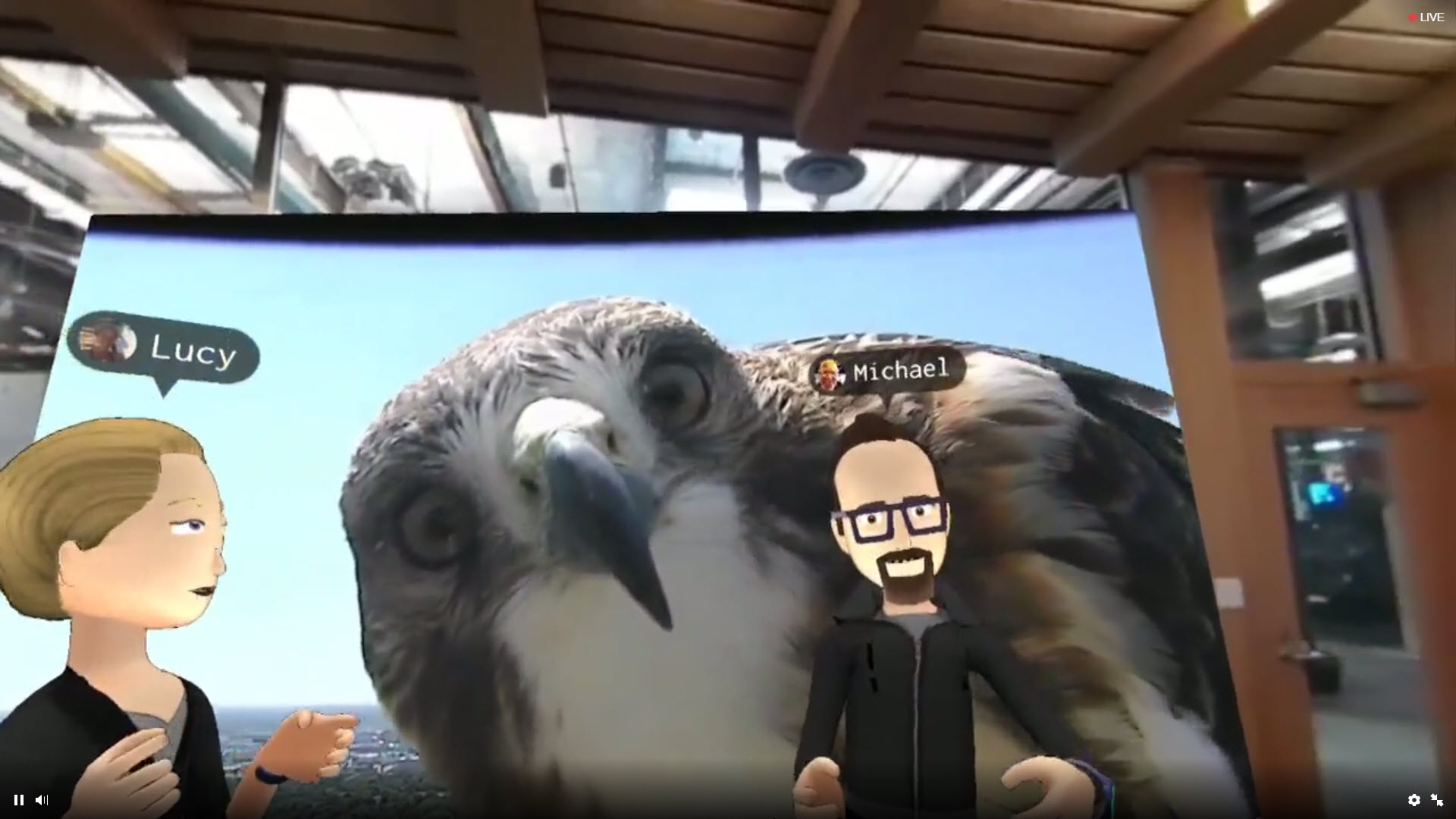
To further foster socializing, Oculus also introduced Parties and Rooms. Parties let users set up a voice call with up to eight people, who can be anywhere in VR. Rooms, on the other hand, let you actually "meet up" with friends. You can do things like play a game, watch a movie or simply hang out inside a Room.
Parties and Rooms head to Gear VR "in the coming weeks," Oculus said.
Facebook and Oculus are placing a huge focus on social interaction, standing firm in the conviction that VR has applications beyond gaming and can help people connect, especially if they are physically apart. The features shown off today are strong strides in achieving social VR - now it's up to users to embrace it.

Michelle was previously a news editor at TechRadar, leading consumer tech news and reviews. Michelle is now a Content Strategist at Facebook. A versatile, highly effective content writer and skilled editor with a keen eye for detail, Michelle is a collaborative problem solver and covered everything from smartwatches and microprocessors to VR and self-driving cars.